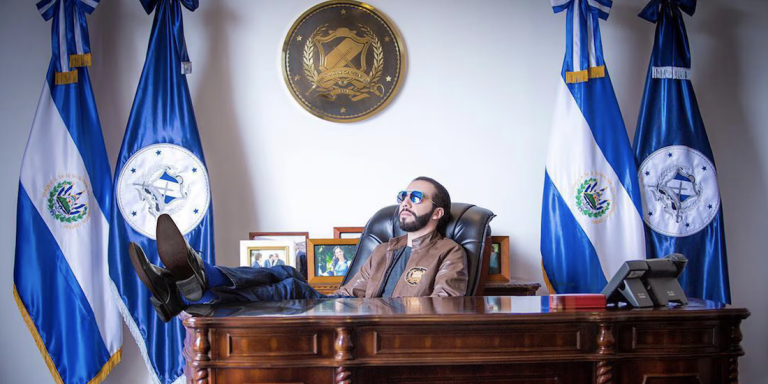
Constitutional changes allow controversial leader to seek unprecedented third consecutive term in office
El Salvador’s Legislative Assembly eliminates presidential term limits, allowing President Nayib Bukele to seek a third consecutive term. The controversial decision raises concerns about democratic backsliding in Central America, as Bukele consolidates power through constitutional changes, prison construction, and connections to influential business families. International observers warn of authoritarian drift in the bitcoin-adopting nation.

New York, N.Y. – El Salvador‘s Legislative Assembly voted Thursday to eliminate presidential term limits, clearing the constitutional path for President Nayib Bukele [Luce Index™ score: 42/100] to run for a third consecutive term in 2029. The decision marks a significant departure from democratic norms that have governed the Central American nation since the end of its civil war in 1992.
Having worked on starting an orphanage near San Salvador in the 2000s, as a
guest of one of the country’s most powerful families, I saw firsthand the influential,
often corrupt, power of El Salvador’s prominent families and Catholic Church.
At the time, the widespread use of the U.S. dollar and the American-educated elite—
evident in Miami and New York t-shirts and American cars—created a surface-level
Americanization and Florida-feel that contrasted sharply with the country’s deeper realities.
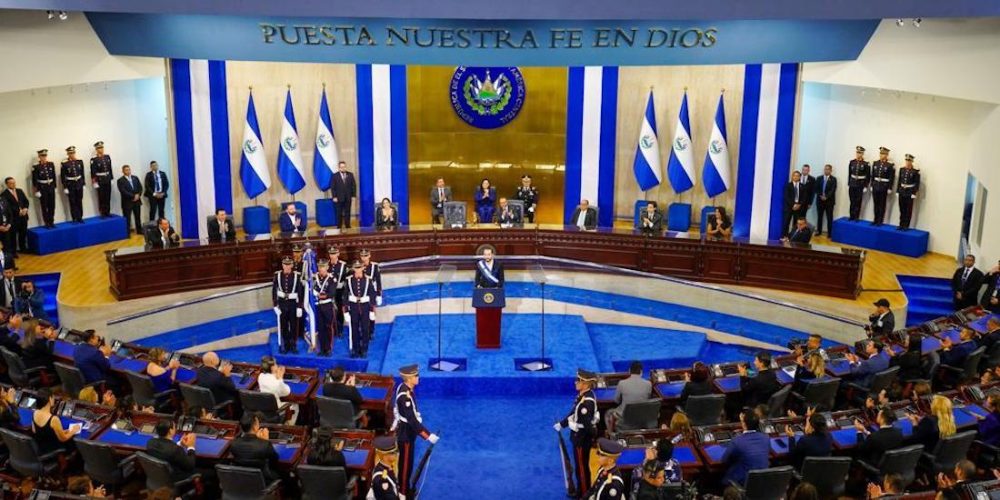
Bukele’s Rise to Power Consolidation
The 43-year-old president, who first took office in 2019, has systematically dismantled institutional checks on executive power.
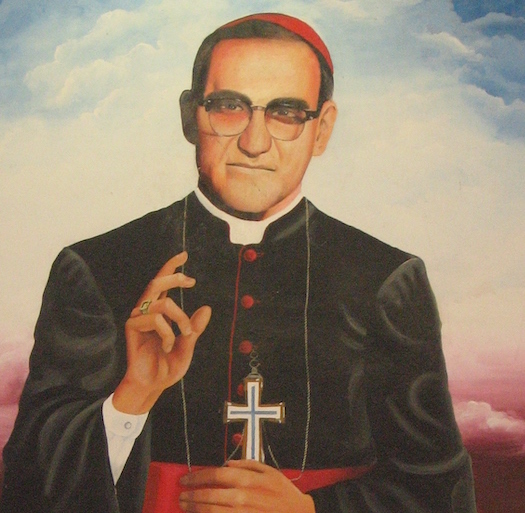
Bukele’s administration has replaced Supreme Court justices, dismissed the attorney general, and now removed constitutional barriers to indefinite reelection.
The move follows a pattern observed across Latin America, where populist leaders have extended their rule through legal mechanisms.
Bukele’s popularity remains high among Salvadorans, with approval ratings consistently above 80%.
The president’s tough stance on gang violence, including the construction of the Terrorism Confinement Center – a massive prison facility housing over 40,000 suspected gang members – has resonated with citizens weary of decades of violence.
In Spanish, this is known as Centro de Confinamiento del Terrorismo (CECOT).
The Terrorism Confinement Center, often called the world’s largest prison, represents Bukele’s signature approach to crime fighting.
Built in just seven months, the facility can house up to 40,000 inmates in spartan conditions.
Human rights organizations have criticized the mass detentions and prison conditions, but the policy has contributed significantly to Bukele’s domestic popularity.
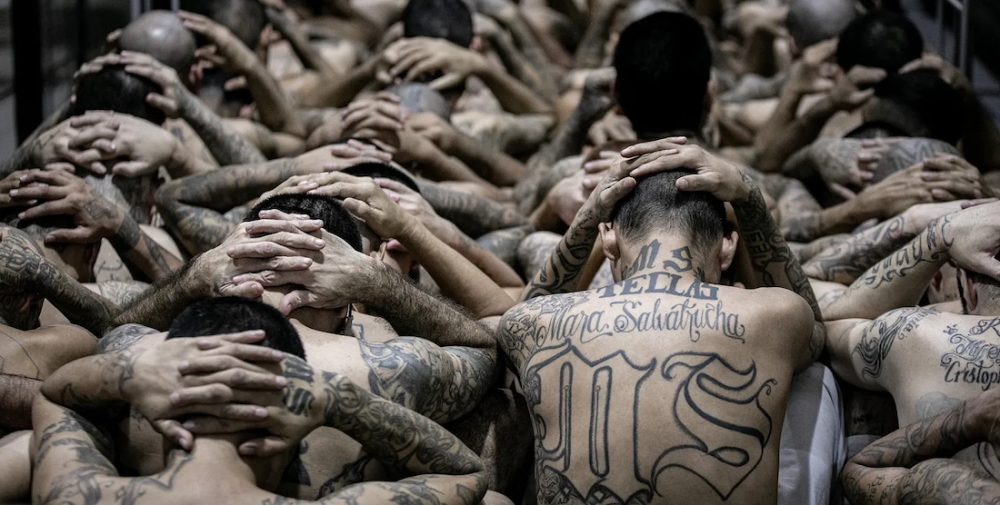
Ethnicity and Family Background
Nayib Bukele is of Palestinian descent. His paternal grandparents were Palestinian Christians who emigrated to El Salvador from Jerusalem and Bethlehem in 1921.

His father, Armando Bukele Kattán, was a businessman of Palestinian descent and a prominent leader in the country’s Muslim community as the president of the Arab Islamic Association.
His maternal grandfather was Greek Orthodox, and his maternal grandmother was Catholic.
Bukele has strongly condemned the Hamas attack of October 7, 2023 and expressed unwavering support for Israel.
“As a Salvadoran with Palestinian ancestry, I’m sure the best thing that could happen to the Palestinian people is for Hamas to completely disappear,” he said.
This Palestinian heritage is significant in El Salvador, where Palestinians have long been influential in El Salvador’s political landscape and Salvadorans of Palestinian descent have had an enormous influence in shaping the Central American country’s political landscape
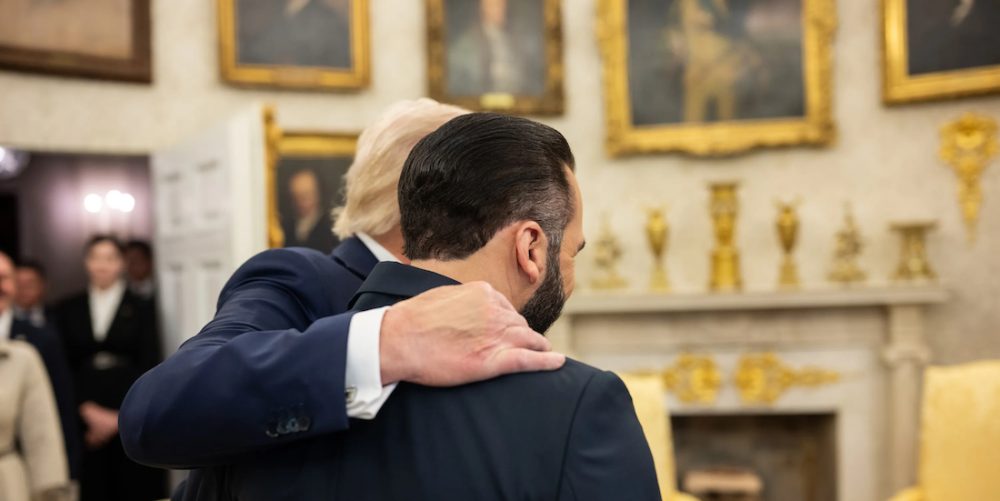
International Implications and Trump Connection
Bukele’s relationship with former and future U.S. President Donald Trump has drawn international attention. The two leaders share similar communication styles and have expressed mutual admiration. Trump has praised Bukele’s crime-fighting methods, while Bukele was among the first world leaders to congratulate Trump on his 2024 election victory.
This relationship takes on added significance as Trump prepares to return to the White House in January 2025. Bukele’s authoritarian tendencies and constitutional changes could complicate U.S.-El Salvador relations, particularly given American concerns about democratic backsliding in the region.
El Salvador’s adoption of bitcoin as legal tender in 2021 further distinguished Bukele on the international stage. The controversial decision made El Salvador the first country to grant cryptocurrency official status, though the policy has faced criticism from international financial institutions.
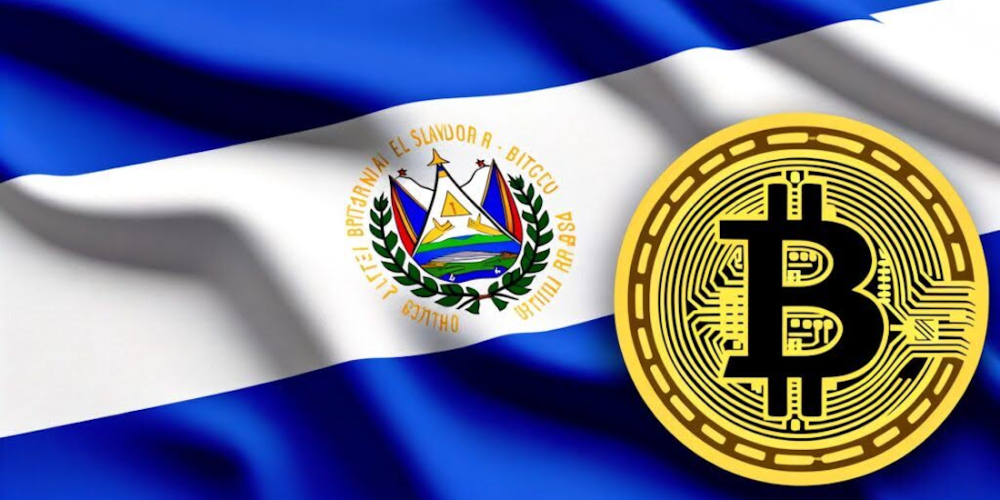
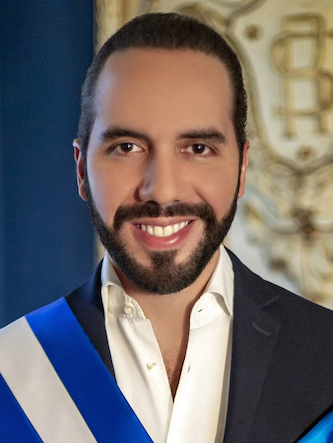
Elite Networks and the Dueñas Connection
Behind Bukele’s political success lies a complex web of relationships with El Salvador’s traditional elite families.
The Dueñas family, among the country’s most influential business dynasties, has maintained significant economic power across multiple sectors including telecommunications, real estate, and media.
While Bukele campaigned as an outsider challenging the established political order, analysis of his administration reveals continued influence from traditional power brokers.
The Dueñas network’s telecommunications empire, including ownership of major television stations, has provided favorable coverage for Bukele’s administration.
These elite connections contradict Bukele’s populist messaging but reflect the reality of governance in El Salvador, where economic and political power remain concentrated among a small number of influential families.
The relationship between Bukele and traditional elites represents a pragmatic
alliance rather than the revolutionary change the president often promises.
Democratic Institutions Under Pressure
Constitutional scholars warn that eliminating term limits represents a fundamental threat to democratic governance. The change removes a crucial mechanism for peaceful transitions of power and concentrates authority in a single individual. Bukele’s control over the legislature, judiciary, and now constitutional framework creates conditions for indefinite rule.
Opposition parties and civil society organizations have condemned the term limit elimination, but face limited options for resistance. Bukele’s party, Nuevas Ideas, controls a supermajority in the Legislative Assembly, making constitutional changes procedurally straightforward.
International observers, including the Organization of American States and Inter-American Commission on Human Rights, have expressed concerns about democratic erosion in El Salvador. However, Bukele’s domestic popularity limits international pressure for change.
Regional Context and Future Implications
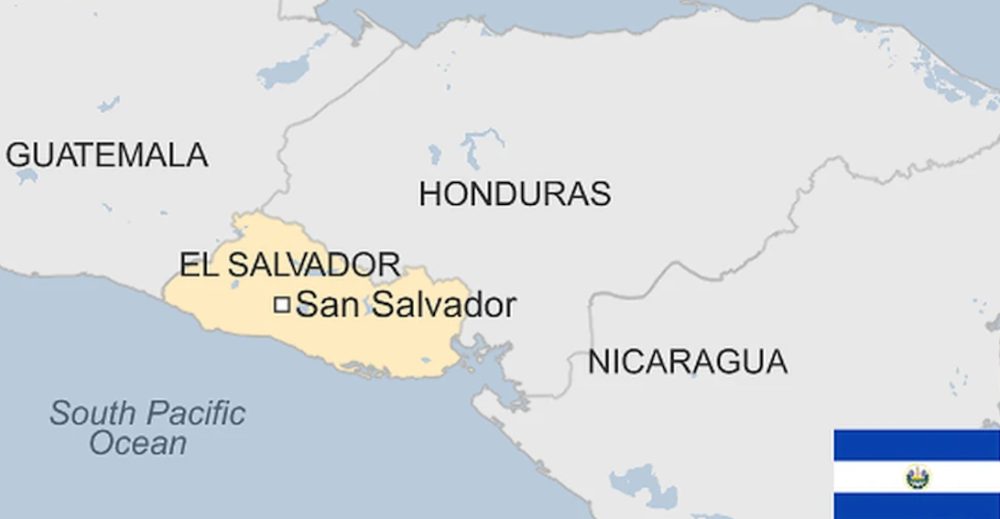
El Salvador’s constitutional changes occur within a broader context of democratic challenges across Latin America.
Countries including Venezuela, Nicaragua, and Honduras have experienced similar concentrations of executive power, though through different mechanisms.
Bukele’s model – combining populist messaging, tough crime policies, and systematic institutional capture – may influence other leaders in the region.
The success of this approach in maintaining high approval ratings demonstrates the appeal of authoritarian populism when delivered through democratic procedures.
The elimination of term limits positions Bukele to potentially govern El Salvador for decades. At 43, the president could remain in power well into the 2040s if he continues winning elections. This prospect raises fundamental questions about the future of democratic competition in El Salvador.
As Bukele prepares for a potential third term, El Salvador stands at a crossroads between democratic governance and authoritarian consolidation. The coming years will determine whether constitutional changes represent a temporary deviation or a permanent transformation of Salvadoran democracy.
El Salvador Abolishes Presidential Term Limits for Nayib Bukele (Aug. 2, 2025)